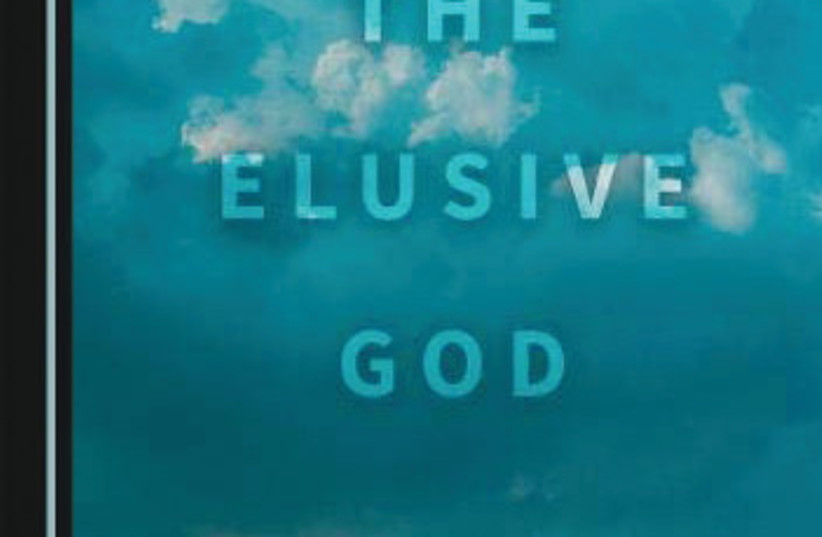The authors begin this fascinating and instructive book by reviewing the efforts of philosophers and theologists, such as St. Anselm, Thomas Aquinas and Descartes, to prove the existence of God.
They discuss meaning of the notion of existence, and argue that there are basically two categories, things of a material nature, and things of a spiritual nature, for example, a painting hanging on the wall and the emotional impact it conveys, or, on a somewhat more abstract level, a mathematical proof of a theorem and the thoughts and understandings that it opens up.
They argue, in Chapter 6, that God makes a relation between these two categories, and we see the existence of God in the resulting complex world. Eventually, it emerges that things of the spiritual category have reality just as well as things of the material category.
The ancient Greeks, as in other early civilizations, applied the notion of many gods, for example, for agriculture, weather and other phenomena. Aristotle, however had the idea of a “prime mover,” which set the world and the planets in motion, and nature then just developed, but did not acknowledge a creator.
On the other hand, Einstein said he believed in an intelligent creator, who created the world and its laws of evolution, which then developed according to these laws.
In the later chapters, the authors discuss how these concepts emerge in our perceptions in physics and mathematics, taking a very different point of view from that of Steven Weinberg, a Nobel Prize laureate, who asserts that there is no God, and that religion is a waste of time. In his book on the evolution of the world from the big bang, he provides natural explanations for many phenomena, but at the end he is looking out of an airplane window, and sees beautiful green fields, farms, blue sky and clouds, and asks, could this all be by chance? His answer was “yes.”
However, Eugene Wigner, also holder of a Nobel Prize, calculated the likelihood that the formation of life and our familiar world from elements available in the early universe, and found that such a chance is very close to zero.
At the birth of modern science, Isaac Newton, a deeply religious man, assumed that God gave us an absolute universal time that controlled the evolution of physical systems in space according to well-defined laws. His formulation of these laws, based on observations available at that time, for example, by Galileo and Kepler, carried out in his book Principia was remarkably successful in describing the motion of the Earth and planets around the Sun.
The authors describe the remarkable relation between underlying spiritual insights of Newton with the eventual material observations characteristic of modern science. It may appear, moreover, that mathematics, based on a universal logic, would not have the flexibility to carry a spiritual element.
In addition, however, to the content of imagination and motivation resulting in concrete proofs and results, there is the dramatic theorem of Kurt Gödel, which asserts that in any essentially non-trivial mathematical structure there are statements that can be made within the system that cannot be proved within that system. The authors then discuss the questions of the relation between mind and body, and the free will.
There have been efforts in recent years to construct models of the working of the brain through the organization of neural networks. These efforts have been successful in establishing sophisticated computer programs capable of applying highly complex logical inferences, such as mastering the game of chess. However, there has been no suggestion of how to achieve the notions of feeling, pain, purpose, creativity, self-awareness or even irrationality, in terms of constructive algorithms.
What is evidently lacking is the spiritual aspect of human consciousness that lies beyond the reach of known technology. The authors discuss the notion of the soul, how it emerged historically as an entity distinguished from the physical body. One sees that this spiritual entity, associated with the notions of identity and the free will, can have the property of immortality, closely associated with the existence of God, from whom we have the gift of free will, to choose between good and evil, but with admonition from the Bible to make the right choice.
The authors point out that the advent of the quantum theory, which replaces the absolutely certainties of Newtonian-Galilean mechanics, on a microscopic scale, with a fundamentally probabilistic theory (predictable statements of chance), might appear to accommodate the freedom of choice by man, whose mechanical functions might be determined by probabilistic laws.
Schrödinger’s careful analysis of this possibility shows that by far the uncertainties of the quantum theory cannot provide a basis for the free will. Further, it would appear that the quantum theory does not directly describe reality as it is, but is only concerned with what could be perceived.
This book provides a profound insight into the unification of the spiritual and material that are the source of our faith in the elusive God.
The Elusive God
By Yakir Z. Shoshani, Asher Z. Yahalom
Cambridge Scholars Publishing
145 pages; $119.95

